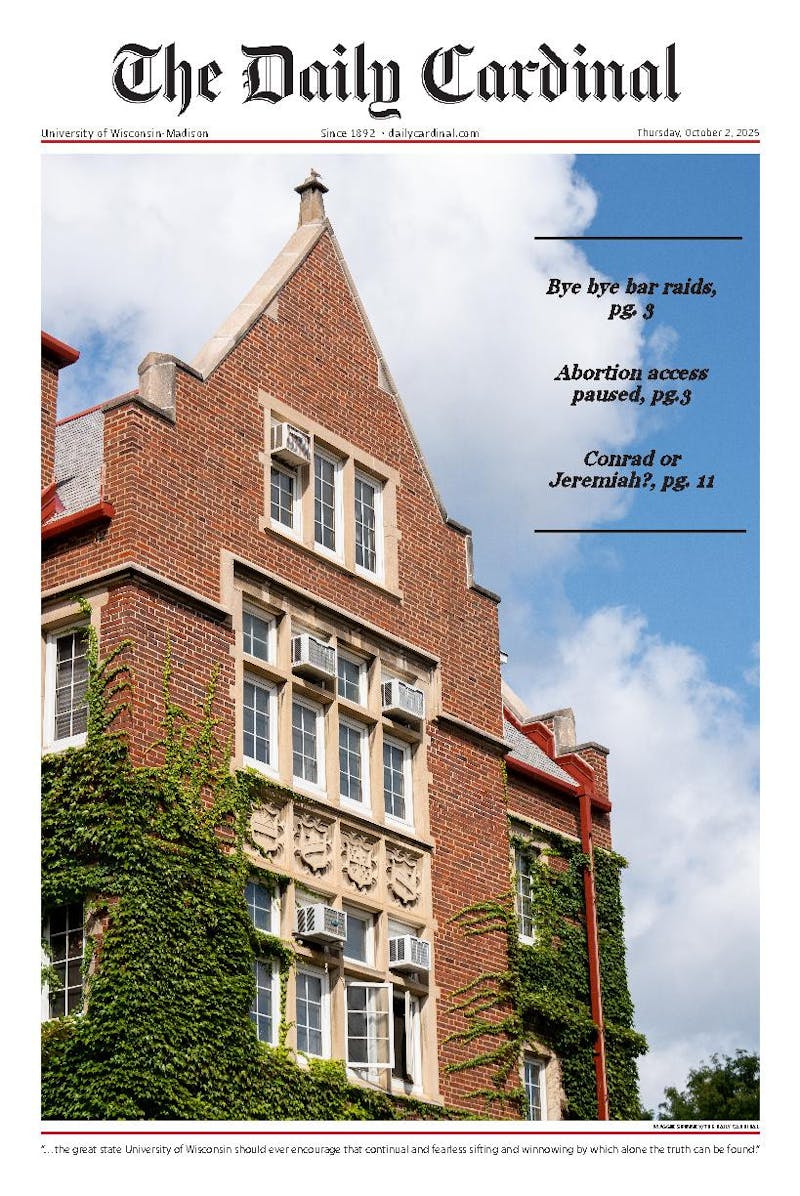It's really too bad that, at some indeterminate point in American cultural history, having a taste for world cinema became a signifier of either one's sophistication or one's pretentiousness. Equally unfortunate is the categorical division between American films and non-American films: To speak of works such as Fritz Lang's ""M"" as being strictly ""foreign"" is to downplay the influence they have had on movies made right here in the good ol' U.S. of A. With that said, major kudos are due to WUD Film Committee for providing UW students with the opportunity to see four canonical masterpieces of world cinema on 35mm this weekend.
The first of the four is Jean Cocteau's ""Beauty and the Beast"" (1946), an adaptation of Jeanne-Marie Le Prince de Beaumont's well-known fairy tale. Cocteau was one of modern art's great renaissance men: he was an influential poet, a successful playwright, a novelist and a boxing manager. He also directed 11 films, at least three of which—""Orpheus"" (1950), ""The Testament of Orpheus"" (1960) and ""The Blood of a Poet"" (1930)—are standouts in the history of French cinema. Cocteau's style is marked by a penchant for inventive if somewhat gimmicky special effects, continuing a tradition of fantasy in French cinema that originates with the work of the turn-of-the-century filmmaker Georges Méliès.
""Beauty and the Beast,"" which stars Cocteau's frequent collaborator and lover Jean Marais as the eponymous Beast, showcases much of what made Cocteau's art as distinctive as that of his longtime friend Pablo Picasso.
Although narrative cinema had already been the norm for 30-plus years by the time he made ""The Blood of a Poet,"" Cocteau nevertheless saw film as an essentially poetic medium, or as he put it, ""a first-class vehicle of ideas and of poetry that can take the viewer into realms that previously only sleep and dreams had led him to."" He conceived of cinema as a way to practice ""a kind of hypnotism on the public"" and enable ""a large number of people to dream the same dream together."" While his ""Beauty and the Beast"" may lack musical numbers, you'd be hard-pressed to find a filmic fairy tale dreamier than this. The screening begins at 7 on Friday night.
Ingmar Bergman's ""The Seventh Seal"" (1957) will screen at 9:30 on Friday night, and if you've never seen it before, you'd do well to check it out. Bergman is as divisive a figure as world cinema has ever seen: There seem to be just as many who admire his brooding chamber dramas and period pieces as there are those who find his work gratingly serious and stylistically unimpressive. ""The Seventh Seal,"" regarded by most as one of Bergman's very best and certainly his most well-known (and most lampooned) film, first came to the U.S. at the height of the ""European art cinema"" explosion of the 1960s, a moment in the history of American film exhibition that laid the groundwork for events like WUD Film's shindig this weekend. Watching ""The Seventh Seal"" on 35mm was a defining experience for many 60s cinephiles, and it ought to be just as a remarkable in 2010.
Josef von Sternberg's ""The Blue Angel"" (1930) is perhaps best known as the film that launched the career of actress Marlene Dietrich, whose performance as a cabaret chanteuse named Lola Lola instantly won her and von Sternberg cushy spots in the Hollywood money machine (the character of Lola would later be reinterpreted by filmmakers like Jacques Demy and Rainer Werner Fassbinder). The film also features an uncomfortably affecting performance from Emil Jannings, who was already an established entity following his three collaborations with another titan of German cinema, F.W. Murnau, and who hadn't yet been named ""Artist of the State"" by Nazi Minister of Propaganda Joseph Goebbels in 1941. Watching ""The Blue Angel"" can be sort of a strange experience for the contemporary viewer (or at least for this contemporary viewer), yet the film is nevertheless a major touchstone in the history of world cinema. The screening will begin at 7 on Saturday night.
Following ""The Blue Angel"" on Saturday night at 9:30 is Federico Fellini's ""8 1?2"" (1963), a film about filmmaking (or, more precisely, about blocked creativity) that seems to need little introduction these days. The film's got plenty of enormous set pieces, eccentric flights of imagination and a never-without-sunglasses performance from Marcello Mastroianni, who carves a figure in this film that has become undeniably iconic (though the best Mastroianni I've seen came under the direction of another Italian filmmaker, Michelangelo Antonioni, in 1961's excellent ""El Notte""). ""8 1?2"" remains a key point of reference for movies about making movies; if for no other reason, one should check it out just to see what all the fuss is and has been about.
To summarize: Don't waste the opportunity to see some of film history's most discussed and revered titles on 35mm prints for free.
Know any other great movie opportunites around Madison? Let Dan know about them at dasullivan@wisc.edu.





